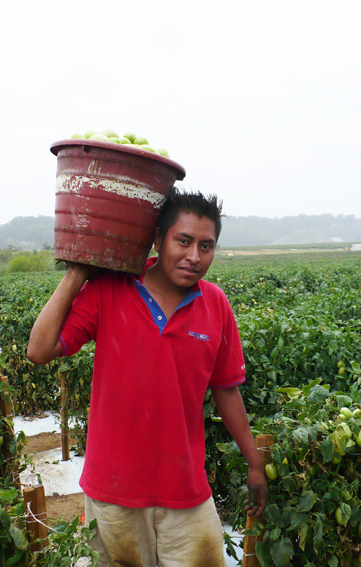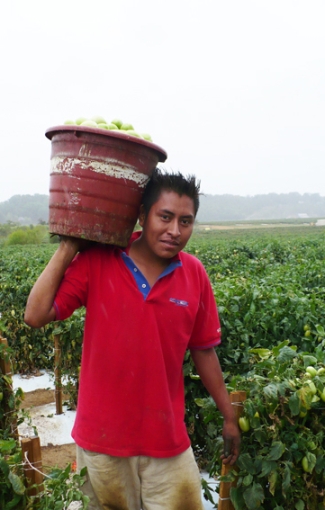A Campus-Community Partnership: New Article Published on An Interdisciplinary Approach to Worker’s Health in Tennessee
 Amy Liebman, Migrant Clinicians Network’s Director of Environmental and Occupational Health, is a co-author of a newly-published article in the Winter 2014 issue of Progress for Community Health Partnerships, a journal published by Johns Hopkins University Press.
Amy Liebman, Migrant Clinicians Network’s Director of Environmental and Occupational Health, is a co-author of a newly-published article in the Winter 2014 issue of Progress for Community Health Partnerships, a journal published by Johns Hopkins University Press.
The article, entitled, “A Campus–Community Partnership for Farmworkers’ Health: Interventions for Tomato Workers in Tennessee,” chronicles a multidisciplinary approach to occupational health, through a program offered at East Tennessee State University. The article highlights MCN’s environmental and occupational health initiative, which, through a cooperative agreement from the Environmental Protection Agency (EPA), provides on-site clinical training, resources, technical assistance, and peer-to-peer networking between frontline providers and occupational and environmental medicine specialists, in order to improve primary care for workers who are injured on the job. The article details the collaboration between students and MCN in developing and implementing an environmental and occupational health clinic at Rural Medical Services, a community health center in the region.
“MCN was excited to be a part of all this great work that’s going on in Tennessee,” said Ms. Liebman. “The engagement of students from across several health disciplines – including medical students, public health students, and nursing students, working together with a migrant health center and local farmworkers -- made for a vibrant collaboration.”
Participating students first conducted needs assessments, based on surveys of local tomato farmworkers East Tennessee, and other research. The following semester, the teams implemented interventions at the health center. “Exposing health professional students to issues of occupational safety and health may yield benefits beyond the classroom and teaching clinic,” the article states. “Each cohort of new practitioners will enter the regional workforce with awareness of and competency in occupational diagnosis, referral, and intervention, with a focus on local industries.”
- Log in to post comments






